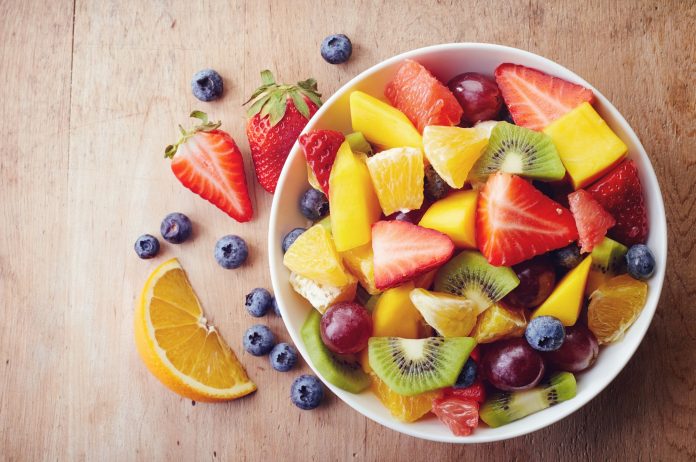A new study published in the online journal, BMJ Nutrition Prevention & Health, adds weight to the recommendation that a nutritious breakfast, along with a higher intake of fruit and vegetables is significantly associated with better emotional wellbeing and mental health in secondary school children.
The findings have prompted the researchers to call for the inclusion of good nutrition in public health strategies to maximise kids’ mental health – something that can be promoted within retail pharmacy.
The study
To explore the link between school children’s dietary choices and their mental health, the researchers drew on responses from more than 50 schools in Norfolk England, to The Norfolk Children and Young People Health and Wellbeing Survey 2017.
In total, 10,853 pupils completed the survey on their mental health and nutrition: 9% of Norfolk primary school children in the target year groups (9–11-year-olds); 22% of secondary school pupils; and around 6% of young people in years 12 and 13 (17-18-year-olds).
Dietary questions aimed to explore fruit and vegetable intake, as well as the type of breakfast and lunch eaten; alcohol intake; eligibility for free school meals; and satisfaction with weight.
Background and general health information was also collected; as well as a range of other factors, ranging from whether they had their own bedroom and bed to whether they felt safe at school and at home, including whether they had witnessed violence or arguing at home.
Mental health was assessed using validated age-appropriate measures.
Data from 7570 secondary school and 1253 primary school pupils were included in the final analysis.
The average mental health score was 46.6 out of 70 for secondary school pupils and 46 out of 60 for primary school pupils.
Only around 1 in 4 (25%) secondary school pupils and 28.5% of primary school pupils reported eating the recommended 5 portions of fruit and veg a day, with 10% and 9%, respectively, eating none.
Around 1 in 5 (21%) secondary school pupils and 1 in 8 (12%) primary school pupils consumed only a non-energy drink or nothing at all for breakfast, while around 1 in 8 secondary school children (11.5%) ate no lunch.
Fruit and Veg results
Higher combined fruit and veg intake were significantly associated with higher mental health scores; the higher the intake, the higher was the score.
Compared with secondary school pupils eating no fruit or veg, eating one or two daily portions was associated with a score of 1.42 units higher, while eating 3 or 4 portions was associated with a score of 2.34 units higher.
Eating 5 or more portions was associated with a score of 3.73 units higher.
Breakfast and Lunch results
Breakfast type was also significantly associated with mental wellbeing.
Compared with a conventional breakfast, such as toast, porridge, cereal, yoghurt, fruit, or a cooked breakfast, eating only a snack or breakfast bar was associated with a score that was 1.15 units lower.
Consumption of energy drinks as a breakfast substitute was associated with particularly low mental health scores, and lower than those for children eating no breakfast at all.
Just having nothing more than an energy drink was associated with a score of 3.14 units lower; not eating any breakfast at all was associated with a score of 2.73 units lower.
Similarly, lunch type was also significantly associated with mental health scores. Not eating any lunch was associated with a score of 2.95 units lower than when eating a packed lunch.
Among primary school pupils, eating only a snack for breakfast was associated with a score of 5.50 units lower while consuming only a non-energy drink was associated with a score of 2.67 units lower than those eating a conventional breakfast.
Not eating any breakfast was associated with a score of 3.62 units lower.
And compared with eating a packed lunch, eating school food was associated with a score of 1.27 units lower, although this wasn’t statistically significant; having no lunch was associated with a score of 6.08 units lower, although there were only a few children in this group, caution the researchers.
Helping to inform public health policy
“The importance of good quality nutrition for childhood growth and development is well established. Our study adds to this prior evidence the finding that nutrition is also highly relevant to childhood mental wellbeing,” say the researchers.
The difference in mental wellbeing between children who ate the most fruit and vegetables and those who ate the least was of a similar scale to those children who reported daily, or almost daily, arguing or violence at home, according to the researchers.
“As a potentially modifiable factor, both at an individual and societal level, nutrition may, therefore, represent an important public health target for strategies to address childhood mental wellbeing,” they say.
“This study provides the first insights into how fruit and vegetable intake affects children’s mental health, and contributes to the emerging evidence around ‘food and mood’,” says Sumantra Ray, Executive Director of the NNEdPro Global Centre for Nutrition and Health.
“The findings are timely, not only because of the impact the pandemic has had on mental wellbeing, food security, and diet quality, especially in school children, but also in light of the recently published National Food Strategy for England, which highlighted gaps in school meal provision.”
He adds: “This study should help to stimulate further research on diet and mental health, as well as helping to inform public health policy.”










